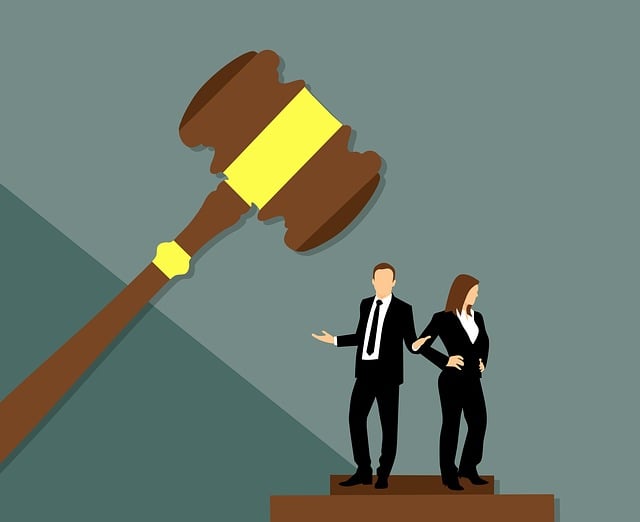Effective lighting strategies in law offices optimize work environments and enhance focus, catering to diverse tasks and individual preferences. Balancing natural and artificial light reduces eye strain, regulates circadian rhythms, and improves employee comfort, thereby increasing productivity on law office equipment. Smart lighting solutions, featuring motion sensors and dimmable fixtures, revolutionize law offices by enhancing efficiency and reducing energy consumption.
Illumination plays a pivotal role in fostering productivity within a law office. The right lighting not only enhances visual comfort but also influences work performance and overall well-being. This article delves into the essential considerations for choosing optimal lighting solutions tailored to a law office environment, focusing on equipment and design. From understanding specific lighting needs to exploring energy-efficient smart lighting, we’ll navigate strategies that transform your workspace, ensuring both efficiency and aesthetic appeal.
- Understanding Lighting Needs in a Law Office
- Types of Commercial Lighting for Optimal Productivity
- Integrating Natural Light and Ergonomic Design
- Smart Lighting Solutions for Energy Efficiency
Understanding Lighting Needs in a Law Office
In a productive law office, lighting goes beyond mere aesthetics; it’s a key component in optimizing work environments and enhancing focus. Understanding the specific lighting needs is crucial for creating a space that supports efficiency among legal professionals and staff. Effective lighting for a law office should consider tasks performed at various workstations, from document review to trial preparation. This means ensuring adequate illumination for computer screens, reading materials, and whiteboards, while also providing task-specific lighting for activities like crafting legal briefs or reviewing evidence.
The right balance of natural and artificial light is essential. Natural light not only boosts mood and reduces eye strain but also helps regulate circadian rhythms, promoting better concentration throughout the day. Supplementing this with well-placed lamps or overhead lights allows for precise control over lighting levels, catering to different tasks and personal preferences without creating harsh shadows or glare that can impede work. Ultimately, proper lighting in a law office equipment is an investment in both employee comfort and productivity.
Types of Commercial Lighting for Optimal Productivity
In a law office, lighting plays a pivotal role in enhancing productivity and creating an environment conducive to focused work. The right commercial lighting solutions can make a significant difference in how lawyers, paralegals, and support staff perform their tasks. One of the key types is general or task lighting, which illuminates specific work areas like desks and conference tables. This ensures clear visibility for reading documents, typing, and other detailed work.
Another essential category is ambient lighting, designed to create a comfortable atmosphere in larger spaces. In law offices, this can include overhead fluorescent lights or LED panels that provide even illumination across rooms. Balancing general and ambient lighting allows for optimal productivity while creating an aesthetically pleasing environment, making it easier for professionals to collaborate and concentrate on their work effectively. When selecting lighting for a law office, considering these types and prioritizing quality ensures that the space meets the needs of its occupants as well as enhances the overall functionality of the law office equipment.
Integrating Natural Light and Ergonomic Design
In designing a productive law office, one often overlooked yet significantly impactful aspect is the integration of natural light and ergonomic design principles in choosing lighting solutions for law office equipment. Natural light has been proven to enhance productivity levels, reduce eye strain, and create a more inviting atmosphere. Strategically placing windows or incorporating skylights can maximize daylight exposure, providing a refreshing alternative to artificial lighting.
Ergonomic design plays a complementary role by ensuring that the chosen lighting fixtures are not only aesthetically pleasing but also functional and adjustable. Task-specific lighting for various law office equipment, such as desks, reading lamps, and computer screens, should be designed with human factors in mind. Adjustable heights, directional lighting, and dimmable features allow users to customize their workstations, promoting comfort and efficiency throughout the day.
Smart Lighting Solutions for Energy Efficiency
In today’s digital era, smart lighting solutions are transforming law offices into productive hubs while also offering significant energy savings. These advanced systems go beyond basic illumination, incorporating technology that adapts to various scenarios and demands. For instance, motion sensors can automatically adjust lighting levels when someone enters or leaves a room, ensuring optimal visibility without wasting energy. Additionally, dimmable fixtures allow for precise control over light intensity, catering to different tasks’ requirements—from detailed document review to relaxed conversation areas.
Integrating smart lighting with other law office equipment, such as automated window coverings and temperature controls, can create dynamic work environments. This interconnected system enables professionals to fine-tune their workspace, enhancing productivity and comfort while significantly reducing energy consumption. By adopting these innovative lighting solutions, law offices not only contribute to cost savings but also foster an eco-friendly image, aligning with the profession’s commitment to justice and responsible practices.
When kitting out your law office with the right equipment, lighting is an often-overlooked but essential component. By understanding your space’s unique needs and integrating various lighting types, you can foster a productive environment that enhances focus and reduces eye strain. Combining natural light with ergonomic design principles and implementing smart lighting solutions not only improves productivity but also contributes to energy efficiency, making it a key consideration in any well-equipped law office.
